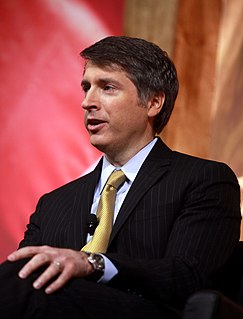A Quote by Jose Angel Gurria
If you are trying to favor the unions by having more rigid labor market and keeping wages very high, you could be blocking people from getting new jobs.
Related Quotes
Skilling is one area where some researchers are looking at outcomes and finding that while there are lots of people who are joining and completing skilling programmes, it is not getting fully translated into getting and keeping jobs. We need to understand how to fix this problem. The returns to having high quality skills are very high.
Private sector labor market flows provide additional indications of the strength of the labor market. For example, the quits rate has tended to be pro-cyclical, since more workers voluntarily quit their jobs when they are more confident about their ability to find new ones and when firms are competing more actively for new hires.
We should have absolute control over our borders. If we want cheap labor to depress wages and disempower the unions, then we could have guest workers. But we have to face that issue. What is it that we want to do? Rather than not facing it, and having porous borders, and the effect is that it disempowers the unions.
You know, when I was in college, there was a big debate: Do unions raise wages? Well, with regard to industrial unions, there were arguments back and forth -- international competition. It is now clear, I think, that whether or not you think unions raised wages 50 years ago, the absence of unions and their weakness that is inflicted by anti-union public policy depresses wages. The fact is that people who are not represented, in the service industries in particular, are the victims of policies which depress their wages.
Labor unions have a long history of benefitting all workers, even those who are not members of unions, because everyone's wages go up. If we don't increase membership - and membership in labor unions is going down because of the attacks against organized labor - it's something every single American, whether they're officially in a union or not, should be concerned about. It's a spiral. It's a weakening of the middle class and our economy can't sustain that.
As a party of labor, the SPD must work together with the unions to ensure that people can make a living with their work. That is why I am not a proponent of the concept of unconditional basic income. I am, however, very much in favor of decent wage agreements, secure and lasting jobs, employee participation in decision-making and the examination of the social justification for claims and payments.
When the press writes scare stories about the global labor supply draining jobs from rich to poor places, the story is usually presented as a "race to the bottom" simply in terms of wages. Capitalism supposedly looks for labor wherever labor is cheapest. This story is half wrong. A kind of cultural selection is also at work, so that jobs leave high-wage countries like the United States and Germany, but migrate to low-wage economies with skilled, sometimes overqualified workers.
We're going to cut taxes, deregulate to try to create general pro-growth conditions, at the same time, much more than any other Republican ever before, [Donald Trump] is going to focus on trying to tighten the labor market directly through discouraging outsourcing and tightening up on immigration, all towards the goal of actually increasing wages, that's a new focus for the Republican Party and a very important one.
By keeping labor supply down, immigration policy tends to keep wages high. Let us underline this basic principle: Limitation of the supply of any grade of labor relative to all other productive factors can be expected to raise its wage rate; and increase in supply will, other things being equal, tend to depress wage rates.
Labor union members, especially white men, are the target group for Donald Trump. He's had a lot of success in getting their support. So, it's not at all clear that labor unions will be able to do as much as they once could to get their members to actually vote for the candidate the union itself supports.



































